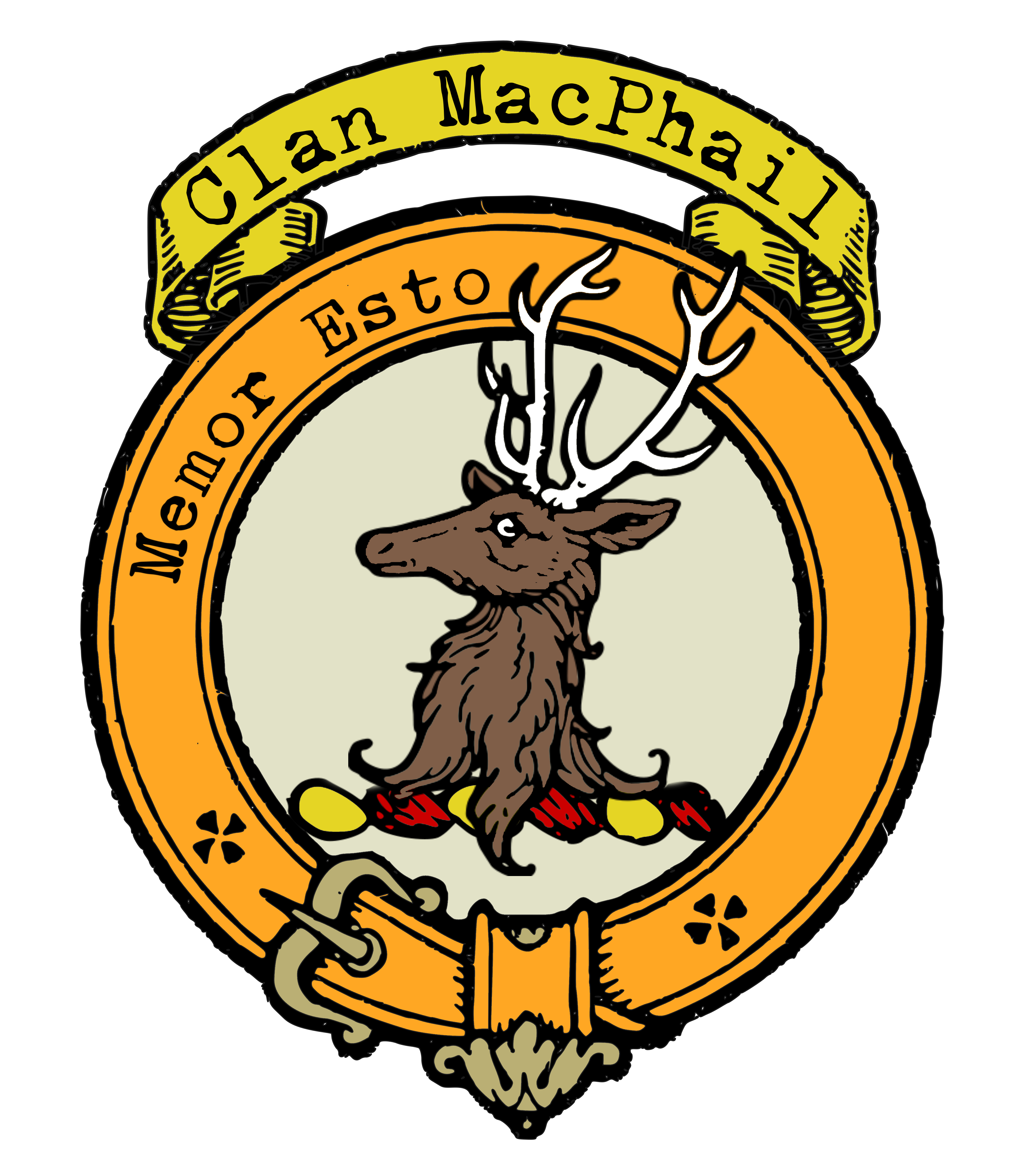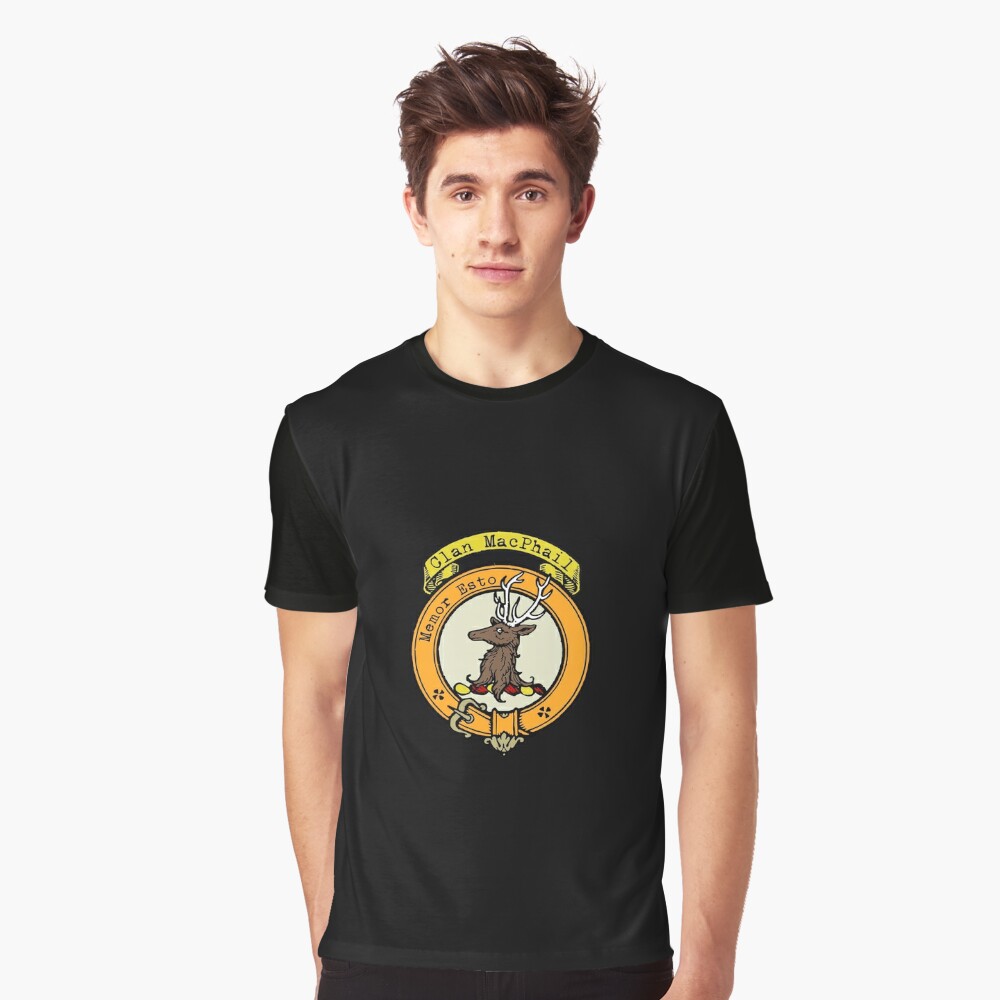Clan MacPhail Crest
|
|
CREST: A stag salient MOTTO: Memor Esto TRANSLATION: Be Mindful VARIATIONS: McPhail |
| The etymology of the surname “MacPhail” derives from the Scottish Gaelic “Mac Phaill,” which translates to “son of Paul.” The progenitors of the clan were likely descendants of a man named Paul, a name carried through generations to become an emblem of the clan’s identity and heritage.
The exact origins of Clan MacPhail remain obscured by the mists of time, but evidence points to their presence in the Scottish Highlands dating back to the medieval era. They were inhabitants of regions such as Inverness, Argyll, and Bute, where they left their mark through witness testimonies, charters, and other historical records. One intriguing aspect of Clan MacPhail’s history is its alleged association with the renowned Clan Mackay. According to the Book of Mackay, some MacPhails were believed to have descended from Mackay ancestors, particularly Paul, son of Neil MacNeil Mackay, who was the brother of Angus “Dubh” of 1411. Though the precise nature of this connection remains debated, it adds an intriguing layer to the clan’s heritage. Throughout history, members of Clan MacPhail have stood tall as respected individuals within Scottish society. Sir John MacPhail, a knight under the Pope, is an exemplar of the clan’s influential presence. His witnessing of a charter related to the church of Lindichty in 1535, followed by becoming the rector of the church in 1538, highlights the clan’s involvement in religious affairs. From Baillie of Rothesay to “reformed incumbend” in Farnway, Clan MacPhail’s members occupied various roles in Scottish society. They served as charter witnesses, held tenancy in lands, and acted as burgesses, demonstrating their versatility and adaptability. Despite the challenging historical events that shaped Scotland, Clan MacPhail has continued to endure and preserve its heritage. Over the centuries, some members of the clan adopted alternate spellings of the surname, such as Macfall and Macfyall. This flexibility in name usage mirrors the clan’s resilience and adaptability through changing times. |
|
Citations:
|
|

Purchase @ Redbubble
Purchase @ Amazon.com
Purchase @ Amazon.co.uk

